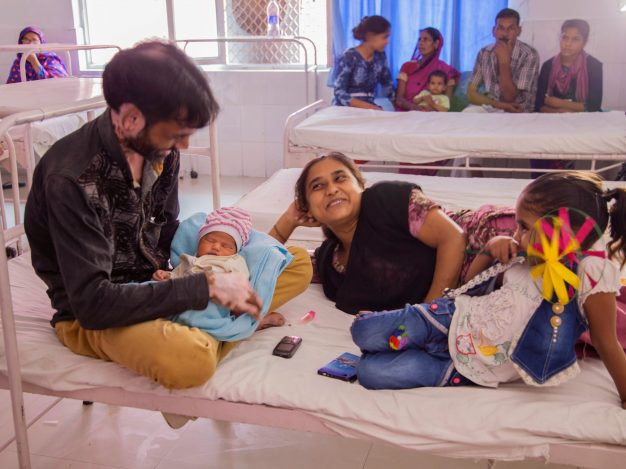
UNICEF: Millions of infants’ fathers denied right to paid paternity leave
Almost 90 million infants worldwide live in countries where their fathers have little or no legal entitlement to paid paternity leave, according to UNICEF.
The United Nations Children’s Fund says that 92 countries do not have a national policy for ensuring fathers get adequate paid time off with their newborn babies, which affects almost two-thirds of the world’s children aged under one year old.
‘Positive interaction’
This includes countries with high infant populations like India and Nigeria. They are in stark contrast to the likes of Brazil and the Democratic Republic of the Congo, which allow for paid leave, albeit on a short term basis.
Henrietta H. Fore, Executive Director of UNICEF, said: “Positive and meaningful interaction with mothers and fathers from the very beginning helps to shape children’s brain growth and development for life, making them healthier and happier, and increasing their ability to learn. It’s all of our responsibility to enable them to fill this role.”
Active role
UNICEF says that evidence suggests that when fathers bond with their babies from the beginning of life, they are more likely to play a more active role in their child’s development. Research also suggests that when children positively interact with their fathers, they have better psychological health, self-esteem and life-satisfaction in the long-term.
The organisation is urging governments to implement national family-friendly policies that support early childhood development – including paid paternity leave – to help provide parents with the time, resources and information they need to care for their children. UNICEF itself has already modernised its approach to parental leave provisions, with up to 16 weeks of paid leave for paternity across all of its offices worldwide, making it the first United Nations agency to extend such leave beyond the standard four weeks.
Super Dads campaign
The new analysis forms part of UNICEF’s Super Dads campaign, which aims to break down barriers preventing fathers from playing an active role in their young children’s development. The campaign last week celebrated Father’s Day – recognised in more than 80 countries – and focuses on the importance of love, play, protection and good nutrition for the healthy development of young children’s brains.




